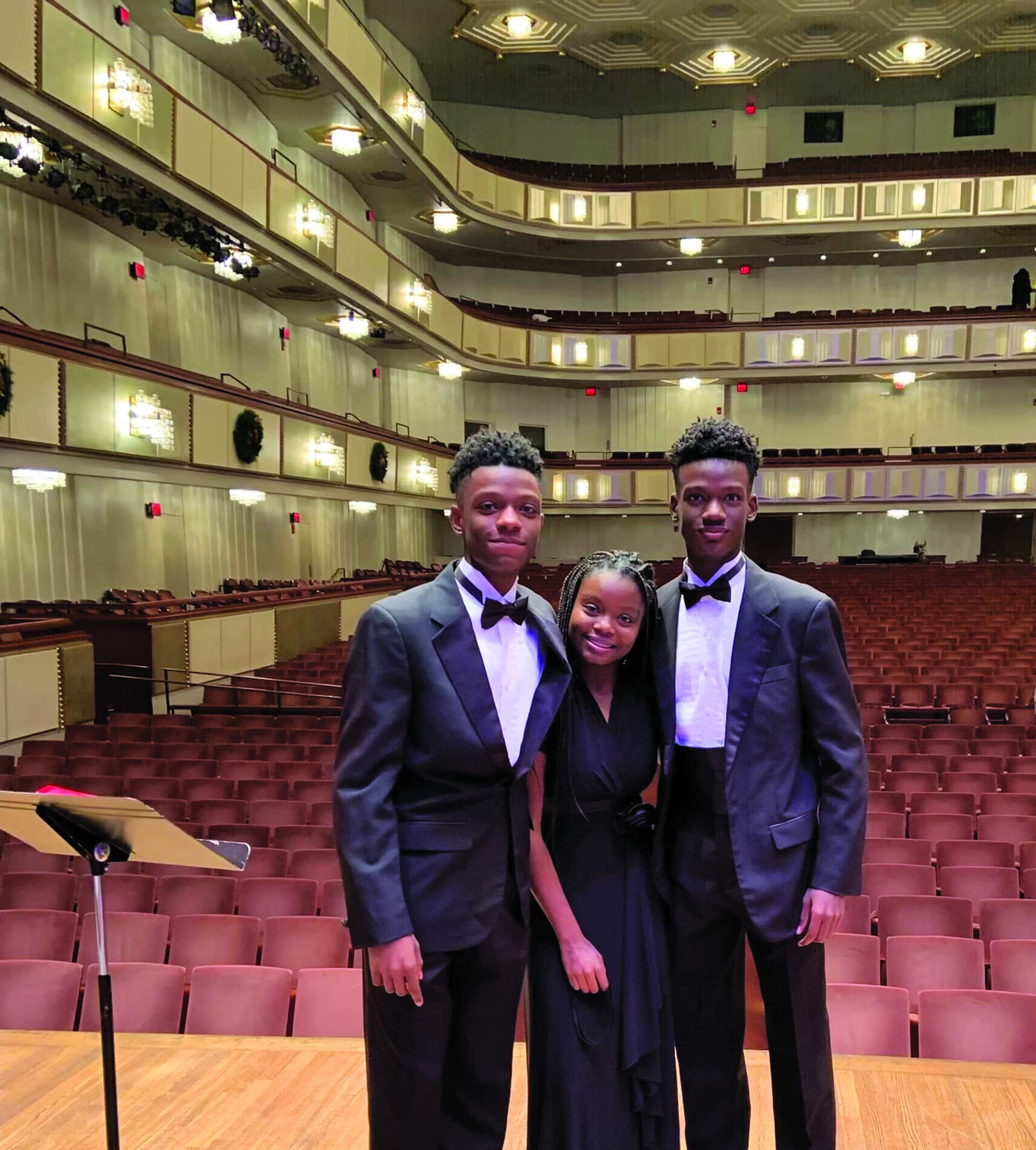
The three of us who wrote this piece have been together all our lives—even before people started counting our birthdays: We’re triplets, you see, now in our teenage years. And by now we have accumulated an abundance of memories because of all the things we do together.
For example, attending church —Emmanuel Brinklow Seventh- day Adventist Church. We remember the last time we attended church like it was yesterday. We sat in our usual places, participated in service as we usually did, and after the service we left to go home.
Never in our wildest dreams would we have anticipated that that Sabbath would have been the final Sabbath before the world changed. From a youth’s perspective, COVID-19 has affected the fellowship, out- reach, and community worship of the Black church.
For many of our friends and colleagues, fellowship is a huge part of the church experience. It is a chance to collaborate with fellow Christ-centered people and evaluate beliefs, ideals, and practices observed in our daily lives. Meeting with other individuals who share similar beliefs has helped to reinforce our per- sonal convictions and strengthen our roots in the Christian church. Activities such as Pathfinders and youth church, as well as events such as Hush Harbor, a social event for the youth, provide a space for the youth to express themselves and find relief from the everyday stressors that accom- pany their lives.
As a result of the pandemic, many youth lost that space of relaxation and freedom. They were left stuck at home with no escape from the stresses and worries of their lives. While for some the lack of physical and interpersonal connections enabled individual growth and connection with God, for many it removed the motivation to continue attending church, and many were left with a spir- itual gap in their lives. The pandemic was a rude spiritual awakening for many who had formed a relationship with church and not with God.
The pandemic affected different people differ- ently. Many lost their jobs and now had to deal with the additional concern of how they would afford groceries, and how they would be able to pay their bills. Our church has always maintained a vigorous social witness, sharing material possessions, stag- ing health fairs, hosting free “SALES” that allow neighbors in need to “purchase” attractive attire and other useful items. The pandemic has increased our witness, allowing us to continue to serve as a beacon of hope and relief for those in the commu- nity around us. We have been able to relieve some of the stress people face by creating food pantries, providing tuition assistance, and simply being a safe space to help alleviate their stressors. Through our experience with Emmanuel Brinklow’s Grocery Grab and Go initiative, we have had an opportunity to witness the impact of our services, whether it was preparing food bags on a biweekly basis or knocking on people’s doors to deliver the food.
This focus on outreach has helped to show the community that we care not only for their spiritual needs, but their physical needs as well. It has also provided an outlet to help us look outward, see the difference we were making in the community, and remove focus from ourselves and our personal situation. It has also given us time to reflect on how a simple act of kindness can bring joy to people’s lives. Especially with all of the social justice issues of the day, we were empowered to be change agents in our own way.
As youth, we have always loved an active and engaging worship service. When virtual church services became the norm, many people lost the engaging element of in-person fellowship that they once associated with church. From the per- spective of many youth, church evolved from a dynamic, in-person, worship experience to a relaxed, online, Saturday service. Then, in order to make their services more engaging and audi- ence-friendly, some worship leaders began to change the way their services were delivered. Churches began implementing Zoom sessions during or after the service to encourage interaction between audience members and the speakers. Live chat sessions became an integral part of service, and people were encouraged to give feed- back. This prompted the church experience to become more of a thoughtful, guided discussion where beliefs were strengthened and challenged, and new perspectives were explored. Through this new way of worship, the audience continued to feel engaged and motivated to listen so that they could participate in worship.
For some members, the pandemic has created many challenges. Virtual worship, financial hardships, and a lack of motivation seem to have affected young and old alike. However, through it all, we have persevered and continued to move forward. We began to take our spiritual lives into our own hands with greater seriousness; our church family started a huge outreach initiative; the online viewer experience grew from a simple service to a more dynamic and interactive worship experience. COVID has not been easy, but we have persevered and will continue to persevere.
COVID has shown us that nothing can stop the will of God’s young people who are committed to continue to spread His love and His Word to every corner of the globe. Our prayer is that as we all continue to worship and to serve, we may constantly remember how far we’ve come and be encouraged that Jesus will take us all the way, no matter how much farther we may have left to go.
Takoma Academy juniors Gabriel, Janelle, and Ethanael attend the Emmanuel Brinklow Seventh-day Adventist Church in Ashton, Maryland, with their parents, Darwin and Martine Morency.